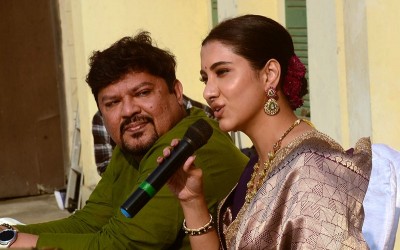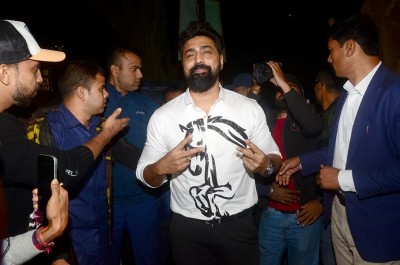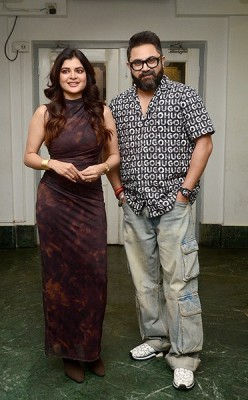
A Change in the offing
A convenience store clerk, a call centre employee or a cab driver—American actors of Indian origin have spent decades portraying these stereotypical characters. But in recent years, there has been a transformation in the types of roles offered to them.
“There have always been plenty of extremely talented South Asian American actors. The issue has been a very low glass ceiling and unwillingness on the part of the folks in Hollywood to cast in a colorblind manner,” says actor and producer Kal Penn.
Penn, born Kalpen Suresh Modi, is best known for his role in the American television medical drama House and for playing Kumar Patel in the Harold & Kumar film series.
“I think the recent rise in brown folks on TV is probably a combination of smarter producers and directors being open to casting in a more colourblind manner, as well as a relative coming-of-age of artists within the South Asian American community who are taking the initiative, and writing and producing their own projects. It’s an exciting time in that regard, for both artists and audiences,” he says.
Penn adds that this change is certainly groundbreaking, but it’s a bit too early to tell whether that’s reflective of an actual change in the way projects are developed and cast. “The hope, of course, is that this trend continues. The immense talent and success of hilarious and hardworking folks like Mindy [Kaling] and Aziz [Ansari] are so great to see. Audiences love them, their stories are unique, heartfelt and funny, and ultimately, those are the universal things that people love to see.”
Ravi Patel has also witnessed the evolution over the years, as an in-demand actor, director and writer. But he, too, finds it hard to pin down the reason behind this shift.
“I honestly cannot explain it,” says Patel. “It’s kind of crazy how many Indian men are in every show. I think we are in this place where we need one non-white guy in every scene. And for some reason, right now, people like that guy to be an Indian. It’s been incredible for my career, but I’d love to see the same amount of opportunities for Indian women.”
Born in Illinois and raised in North Carolina, Patel has appeared in a number of television shows and films over the past decade. These include the role of an Indian call centre operator, complete with a faux accent. He has seen his opportunities evolve from more typecast background characters to increasingly well-rounded and prominent roles.
“The more we see South Asians in non-stereotypical roles, the more we start to accept it as normal,” says Patel.
After co-directing the award-winning documentary on arranged marriage, Meet the Patels (2014), with his sister, Patel got a major recurring role in the hit sitcom Grandfathered. He also appeared on Ansari’s new Netflix sitcom, Master of None.
Patel says that as actors of Indian origin are working their way up, the American entertainment industry is learning to embrace them. This is evident from the success of shows like Master of None and Kaling’s The Mindy Project.
“As people like Aziz and myself are creating our own content, we are writing roles that represent our own experiences and characters we want to play. I’m so excited for what’s happening right now, not only from the perspective of race, but as an artist as well,” he says.
Both Patel and Penn hope that the future is bright for Indian-origin actors. “I hope producers, casting directors, studios, networks and so on begin to cast roles in colourblind ways,” says Penn. “That increases opportunity for everyone, and offers more dynamic, creative products for audiences to enjoy.”
Patel has a piece of advice for aspiring Indian-origin actors.
“You cannot wait for anything in this industry to happen for you; it’s just way too hard,” he says. “Create the change you want to see.”
Courtesy SPAN
Support Our Journalism
We cannot do without you.. your contribution supports unbiased journalism
IBNS is not driven by any ism- not wokeism, not racism, not skewed secularism, not hyper right-wing or left liberal ideals, nor by any hardline religious beliefs or hyper nationalism. We want to serve you good old objective news, as they are. We do not judge or preach. We let people decide for themselves. We only try to present factual and well-sourced news.







